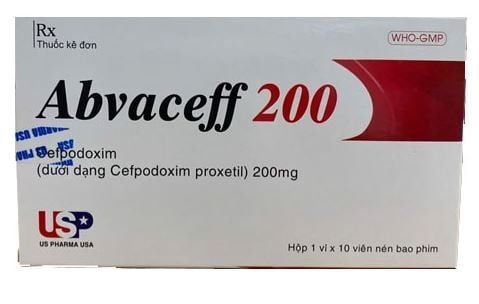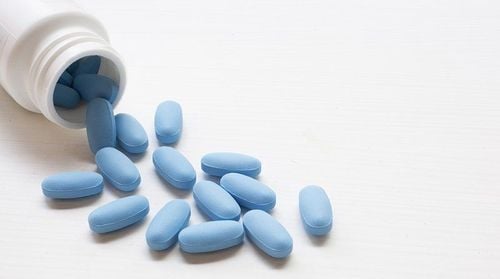This is an automatically translated article.
Trimezola is a prescription medicine used to treat a number of medical conditions. So what is Trimezola and how does it work?1. What are the effects of Trimezola?
Trimezola is an antibiotic drug, the drug is made in the form of tablets with the main ingredient in each tablet:Sulfamethoxazol 400mg. Trimethoprim 80mg. Sulfamethoxazole is a sulphonamide in combination with trimethoprim which is a synthetic pyrimidine antibiotic. These two active ingredients are usually combined in a ratio of 1 trimethoprim and 5 sulfamethoxazole. This combination has created a synergistic effect that increases the effectiveness of treatment and reduces drug resistance.
Sulfamethoxazole is structurally similar to para aminobenzoic acid (PABA). This active ingredient competes with PABA thanks to its high affinity for dihydropteroate synthetase, so it has the effect of inhibiting the phase I of folic acid synthesis of bacteria.
Sulfamethoxazole has a broad antibacterial spectrum, it is active against many gram-negative and gram-positive aerobic bacteria including: Staphylococcus, Legionella pneumophila, Streptococcus, Salmonella, Shigella, Neisseria gonorrhoeae, Neisseria meningitidis, E. coli, Enterobacter, Klebsiella, Proteus mirabilis, Proteus indol positive, Haemophilus influenzae,...
Sulfamethoxazole resistant bacteria are: Enterococcus, Campylobacter and anaerobic bacteria. Trimethoprim is an antibiotic with bacteriostatic effect, it inhibits the enzyme dihydrofolate - reductase of bacteria. Trimethoprim is active against pathogens causing urinary tract infections such as E. coli, Klebsiella, Enterobacter, Proteus, Staphylococcus saprophyticus, Streptococcus faecalis and many types of coliform bacteria.
Trimezola is indicated in the following cases:
Infections with Gram (-), Gram (+) bacteria, especially for: Gonococcal infection. Uncomplicated acute urinary tract infection. Pneumocystis carinii pneumonia. Infections caused by microorganisms sensitive to sulfamethoxazole and trimethoprim. Urinary tract infections. Infectious prostatitis. Respiratory tract infections. Acute exacerbation of chronic bronchitis. Acute sinusitis in adults. Gastrointestinal infections such as bacillary dysentery. Trimezola is contraindicated in the following cases:
People with hypersensitivity to any of its components. People with significant damage to liver parenchyma, severe kidney failure. Pregnant. Pay attention to precautions when using Trimezola in the following cases:
Hematological disorders. Old people. Breastfeeding women. G6PD deficiency. Folate deficiency. CKD.
2. Dosage and how to use Trimezola
Trimezola is used by mouth, you should take it with a moderate amount of water.Dosage of Trimezola drug should be according to the doctor's prescription, the reference dose for adults in the following specific cases:
Urinary tract infections: Use a dose of 1-2 tablets/time, twice a day. , treatment for 10 days. Respiratory tract infections: Use dose 1-2 tablets/time, 2-3 times a day, treat for 10 days. Gastrointestinal infections: Use dose 1 - 2 tablets / time, 2 times a day, consecutive treatment for 5 days.
3. Trimezola side effects
You may experience some side effects while using Trimezola. Rare side effects of Trimezola include:Gastrointestinal disturbances. Inflammation of the mouth. Skin reactions. Tinnitus. Various erythema. Stevens-Johnson syndrome. Lyell. Leukopenia, neutropenia. Decreased platelets. If during the use of Trimezola, you see any unusual symptoms, you need to immediately notify your doctor or go to the nearest medical facility for timely treatment.
4. Interactions of Trimezola with other drugs
Trimezola can interact with the following drugs when used together, including:Thiazide diuretics. Warfarin. Phenytoin. Methotrexate . Pyrimethamine Blood sugar lowering drug. Cyclosporin . Indomethacin.
Please dial HOTLINE for more information or register for an appointment HERE. Download MyVinmec app to make appointments faster and to manage your bookings easily.













